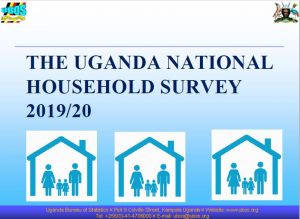
The Uganda National Household Survey 2019/20
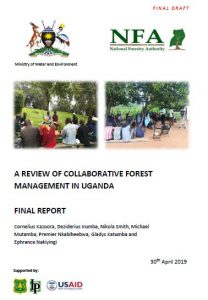
A review of Collaborative Forest Management In Uganda, Final Report,30th April 2019
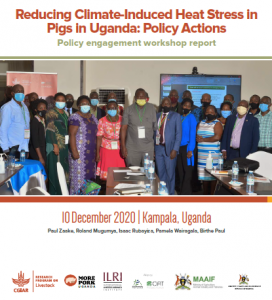
Reducing Climate-Induced Heat Stress in Pigs in Uganda: Policy Actions, Policy engagement workshop report,10 December 2020 | Kampala, Uganda
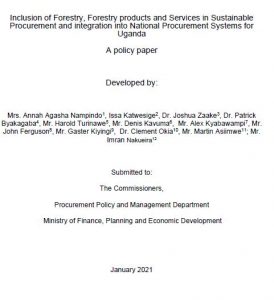
Inclusion of Forestry, Forestry products and Services in Sustainable Procurement and integration into National Procurement Systems for Uganda,A policy paper, January 2021
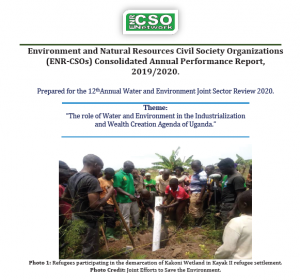
Environment and Natural Resources Civil Society Organizations (ENR-CSOs) Consolidated Annual Performance Report, 2019/2020. Prepared for the 12thAnnual Water and Environment Joint Sector Review 2020.
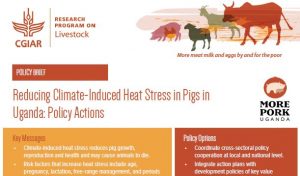
Reducing Climate-Induced Heat Stress in Pigs in Uganda: Policy Actions, 2020
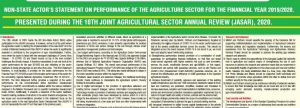
Non-state actor’s statement on performance of the agriculture sector for the financial year 2019/2020, Presented during the 10th joint agricultural sector annual review (JASAR), 2020
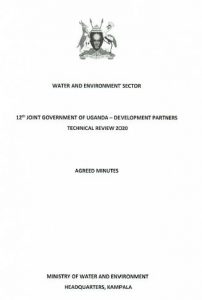
Water and Environment Sector, 12th joint Government of Uganda- Development Partners Technical Review 2020 Agreed Minutes, Ministry of Water and Environment
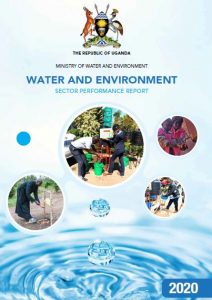
Ministry of Water and Environment Water and Environment, Sector Performance Report, 2020
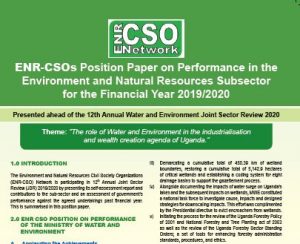
ENR-CSO’s Position Paper on Performance in the Environment and Natural Resources Subsector for the Financial Year 2019/2020. Presented a head of the 12th Annual Water and Environment Joint Sector Review 2020. Theme: “The role of Water and Environment in the industrialization and wealth creation agenda of Uganda.”
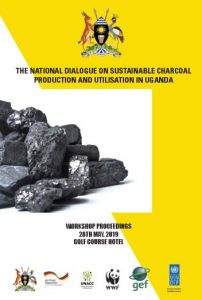
THE NATIONAL DIALOGUE ON SUSTAINABLE CHARCOAL PRODUCTION AND UTILISATION IN UGANDA, WORKSHOP PROCEEDINGS 28TH MAY, 2019, GOLF COURSE HOTEL
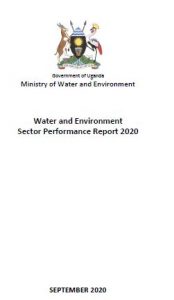
Water and Environment Sector Performance Report 2020, Ministry of Water and Environment, September 2020
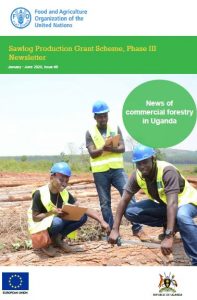
Sawlog Production Grant Scheme, Phase III Newsletter, Jan-June 2020, Issue #8
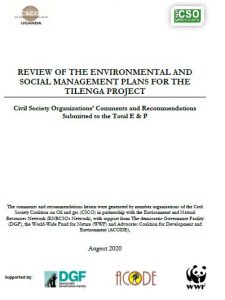
Review of the Environmental and Social Management Plans For the Tilenga Project, August 2020
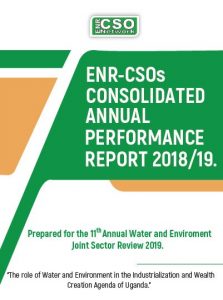
ENR-CSOs Consolidated Annual Performance Report 2018/2019.
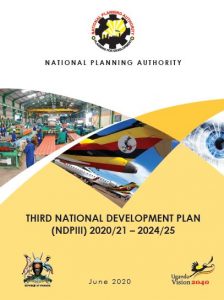
Third National Development Plan (NDPIII) 2020/21 – 2024/25
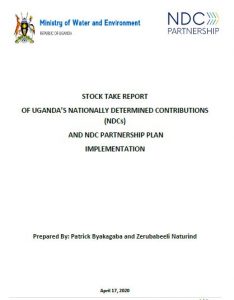
Stock Take Report of Uganda’s Nationally Determined Contributions (NDCs) And Ndc Partnership Plan Implementation, Prepared By: Patrick Byakagaba and Zerubabeeli Naturind. April 17, 2020

Prolinnova–Uganda Country Platform Annual Report for 2019
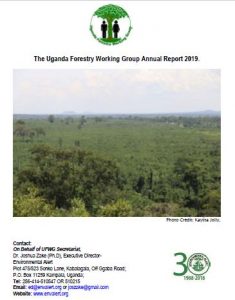
Uganda Forestry Working Group Annual Report 2019
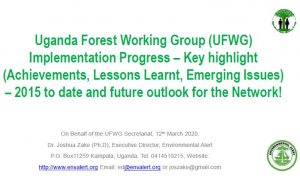
Uganda Forest Working Group (UFWG) Implementation Progress – Key highlight (Achievements, Lessons Learnt, Emerging Issues) – 2015 to date and future outlook for the Network!

Rapid Assessment of Natural Resource Degradation in Refugee Impacted Areas in Northern Uganda, Technical Report June 2019, and Updated based on April 2019 refugee statistics
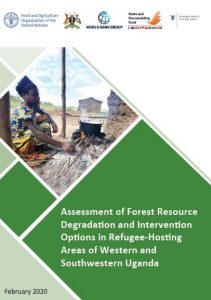
Assessment of Forest Resource Degradation and Intervention Options in Refugee-Hosting Areas of Western and Southwestern Uganda, February 2020

The World of Organic Agriculture: Statistics and Emerging Trends 2020, By FiBL- Organics International

STRENGTHENING RESILIENCE AND PROMOTING INCLUSIVE GOVERNANCE PROGRAM (STRENPO):
Experiences of advocacy and action for climate change resilience
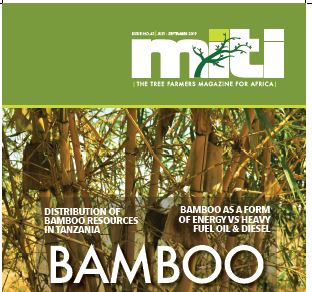
MITI 43 FINAL FINAL WITH 30MM BLEED

Dekad 2 Oct 2019 Bulletin- UGANDA NATIONAL METEOROLOGICAL AUTHORITY (UNMA)

The ENR-CSOs Position Paper on Performance in the Water and Environment sector for the Financial Year 2018/19.
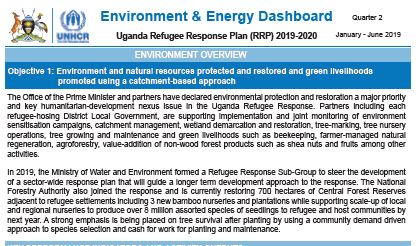
Environment & Energy Dashboard: Uganda Refugee Response Plan (RRP) 2019-2020, Quarter 2, January – June 2019

Performance Snapshot: Uganda Refugee Response Plan (RRP) 2019-2020. Quarter 2, January – June 2019

National Stakeholder’s Dialogue for Development of the National Roadmap for advancing Implementation of the Uganda National Forest Stewardship Standard (NFSS), 27th March 2019 Hotel Africana, Kampala Activity Popular Report.

The Roadmap for advancing structured implementation of the Uganda National Forest Stewardship Standard
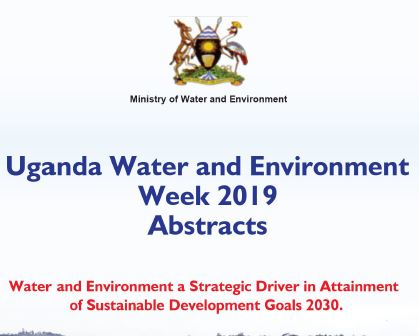
Uganda Water and Environmental Week 2019 Abstracts
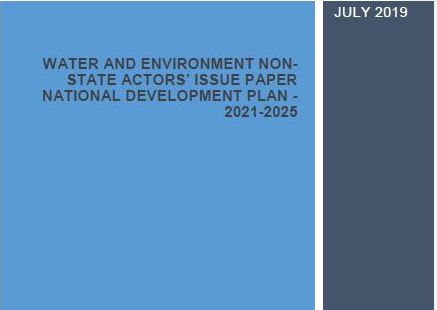
WATER AND ENVIRONMENT NON-STATE ACTORS’ ISSUE PAPER NATIONAL DEVELOPMENT PLAN – 2021-2025, JULY 2019
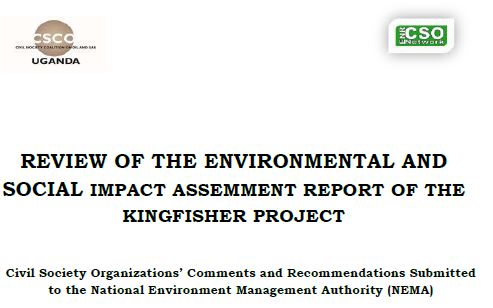
REVIEW OF THE ENVIRONMENTAL AND SOCIAL IMPACT ASSESSMENT REPORT OF THE KINGFISHER PROJECT
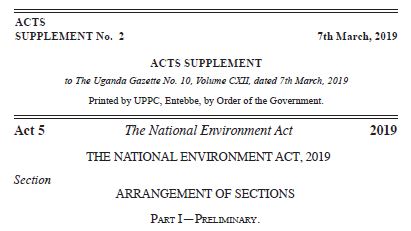
THE NATIONAL ENVIRONMENT ACT, 2019
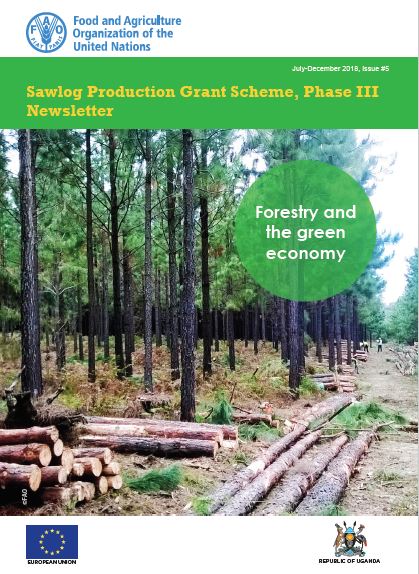
FAO – Sawlog Production Grant Scheme, Phase III Newsletter
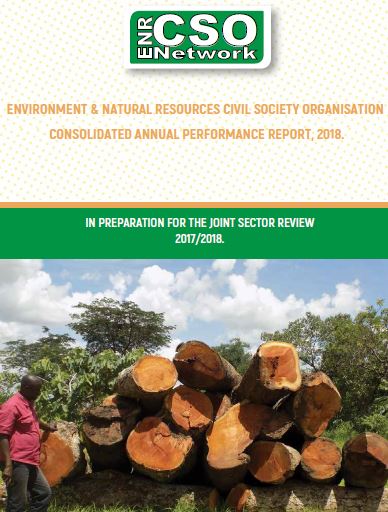
Environment & Natural Resources Civil Society Organisation consolidated annual performance report, 2018
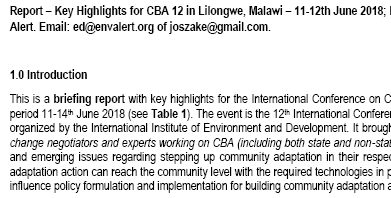
Report – Key Highlights for CBA 12 in Lilongwe, Malawi – 11-12th June 2018; by Dr. Joshua Zake (PhD), Executive Director, Environmental
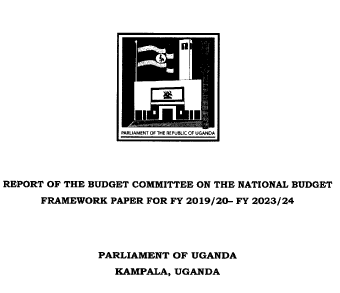
Report of the Budget committee on the National Budget Framework Paper for FY 2019/20 – FY 2023/24

Report: On Soil Scientists and Where to Find Them in Africa: Assessment of Human Capital
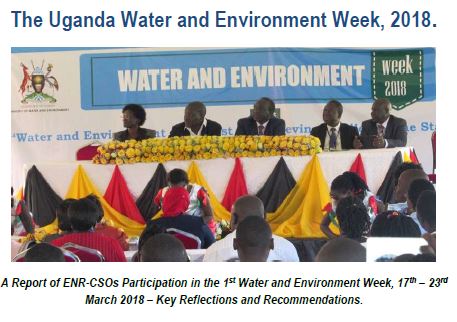
A Report of ENR-CSOs Participation in the 1st Water and Environment Week, 17th – 23rd
March 2018 – Key Reflections and Recommendations
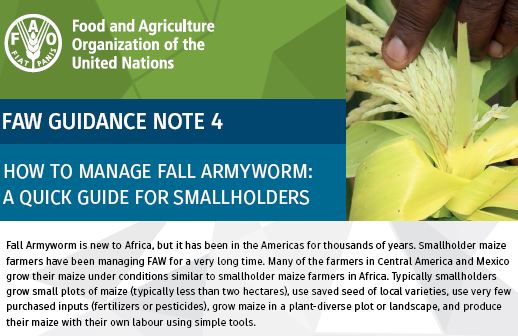
How to Manage Fall Armyworm: A Quick Guide for Smallholders

CSCO AND ENR-CSO Network-Summary comments on the environmental and social impact assessment report of the tilenga project. (Download Summery)
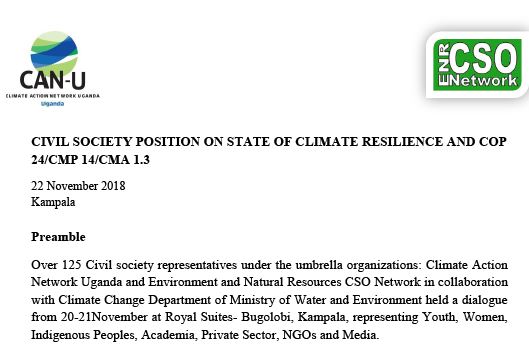
Civil Society position on state of climate resilience and COP 24/CMP 14/CMA 1.3, 22rd Nov 2018
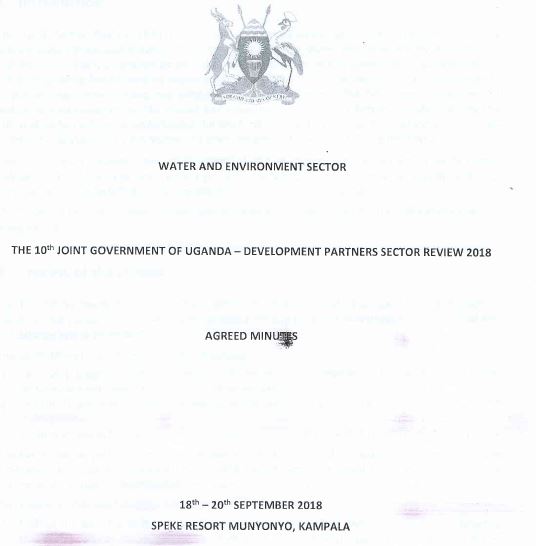
The 10th Joint Government of Uganda- Development Partners Sector Review 2018 Agreed Minutes
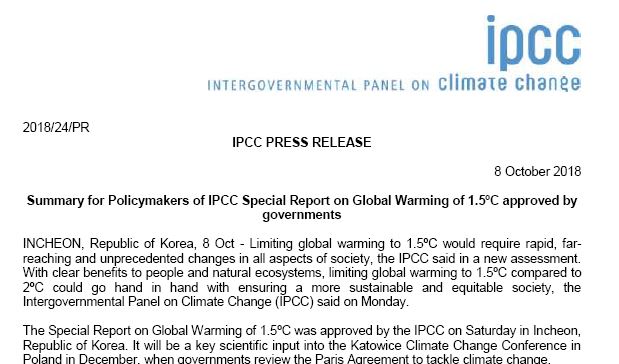
IPCC Special Report on Global Warming-2018/24 PR
Summery Report , Full report

ENR-CSO position paper for the financial year 2017/18
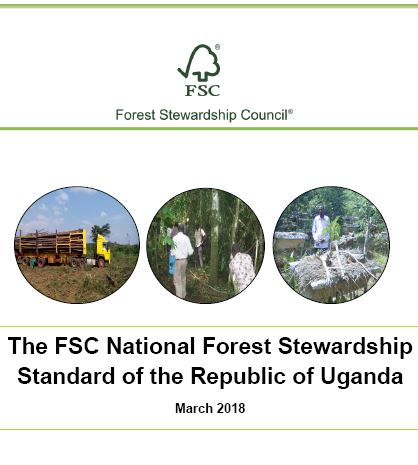
The Forest Stewardship Council National Forest Stewardship Standard of the Republic of Uganda, March 2018
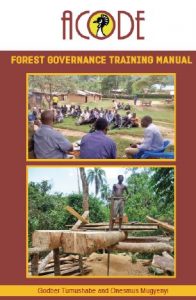
Forest Governance Training Manual (ACODE)
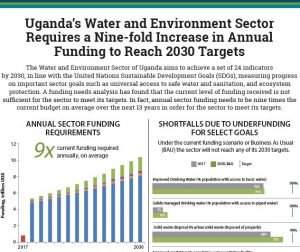
Strategic Investment Plan for Water & Environment Sector, Uganda (2018-2030)
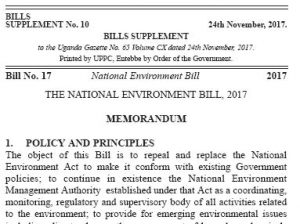
THE NATIONAL ENVIRONMENT BILL, 2017
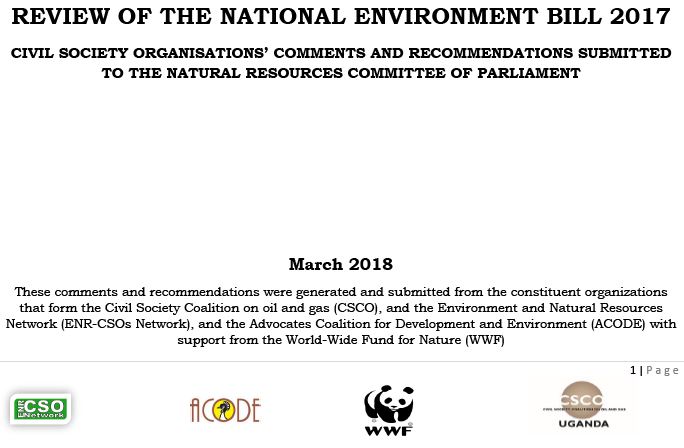
CSO’s Comments & Recommendations on the National Environment Bill, 2017
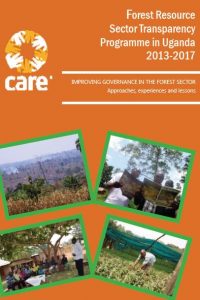
Forest Resource Sector Transparency Programme in Uganda 2013-2017(Care Int-Ug)
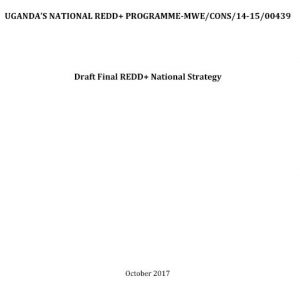
Uganda’s National REDD+ Programme MWE/CONS/14-15/00439, Oct 2017
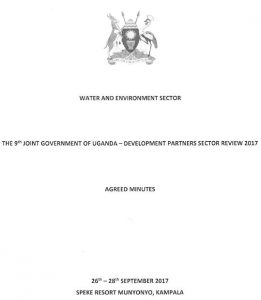
The 9th Joint Government of Uganda-Development Partners Sector Review 2017 Agreed minutes 26-28th Sept 2017
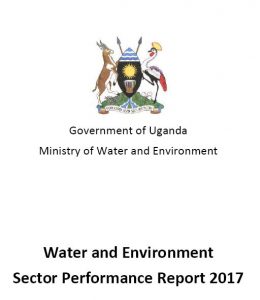
Water and Environment Sector Performance Report 2017
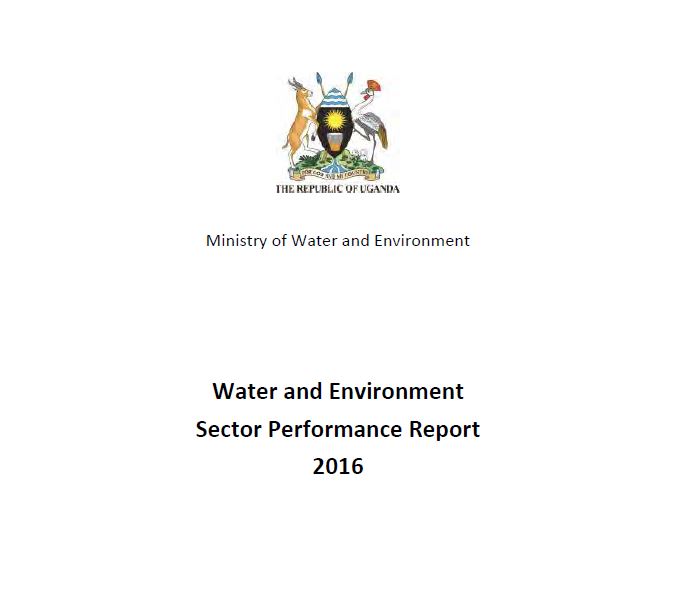
Water and Environment Sector Performance Report 2016
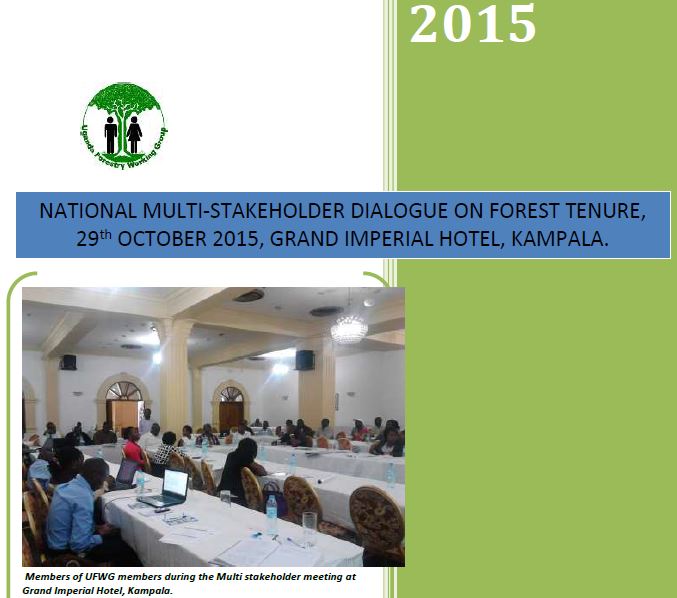
National Multi-Stakeholder Dialogue on Forest Tenure – 29th October 2015

























































